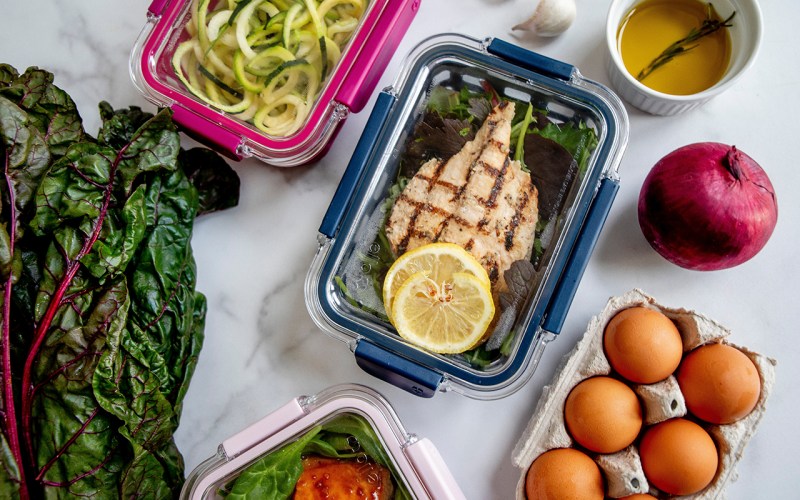
Fitness goals usually fall under one of two categories: working out more and eating better. This can involve following a high protein diet, adding more veggies to dinners, and getting into a running routine. However, there is no need to wait for January, because you can make positive changes at any time of the year!
Now, there are so many routes one can go when considering a diet. Fortunately, a high-protein approach is one of the easiest to pull off. Moreover, it’s a diet that will likely involve some changes to what you eat, but not so dramatically that you’ll give up on it after a few weeks.
The ideal amount of protein is around 56 grams per day, according to Healthline. Those who exercise regularly will certainly need more. If you’re curious about how much protein you consume on an average day, try out a fitness tracking app. Track your eating for a few days and see where you land. You might be surprised that you’re not even hitting that 56g mark.
Even if you are, there are benefits to eating a higher protein diet. We’ll talk through them below, cover how to transition to a higher protein diet, and address some of the concerns surrounding a high protein diet. We’ll also cover what to eat so that your high protein diet isn’t six ounces of grilled chicken breast for breakfast, lunch, and dinner.
Protein is one macronutrient. The other two are carbs and fats. Our daily diets are composed of a mixture of these three macronutrients. While it can be easy to focus on macros, that can be shortsighted. For example, you might want to follow a high protein, high fat diet. Keto and Atkins are two examples of this.
This can be taken to the wrong extreme. Eating a pound of bacon for breakfast is, indeed, a meal high in fat that contains protein. But that is unhealthy for your heart and your cholesterol, and simply eliminating one macronutrient doesn’t magically equate to weight loss. So throughout this guide, while still focusing on incorporating more protein into your diet, it won’t be at the expense of overall health.
It’s important for you to do your own research, listen to your body, and consult with your doctor. This guide is intended for overall health, not for those dealing with GERD, celiac disease, gastroenteritis, or other medical conditions, the solutions to which are beyond the scope of this guide.
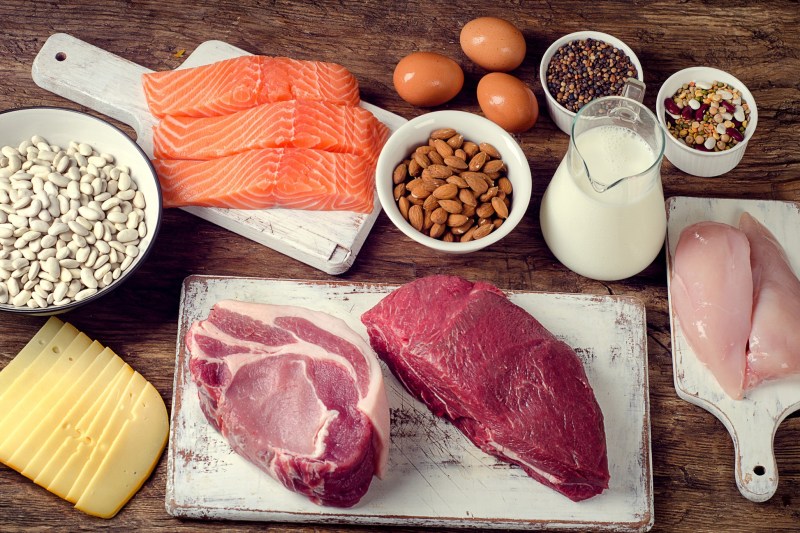
Benefits of a high protein diet
There are a ton of benefits of protein. Among them are the following:
- Protein helps repair the damage caused to your muscles when working out
- Protein aids brain development, hormones, and other bodily functions
- Protein is satiating, meaning you’ll feel more satisfied while consuming less
This last point is particularly important if weight loss is your goal. Restricting calories can be challenging. You may not have as much energy or be able to work out as hard. If you are really restricting calories, you may experience less focus and attention. Because it’s satisfying to eat protein, you’ll feel the effect of calorie restriction less while consuming higher amounts of protein.
If you’re trying to lose weight, you’ll need to operate in an energy deficit. This means the number of calories you burn (both by sitting around and exercising) must be greater than the number of calories you consume. When operating in a calorie deficit, your body begins to burn its existing stores (of fat and muscle) as fuel.
By strength training and eating a decent amount of protein, you signal to your body that it should keep that muscle you’ve been working so hard to gain. Instead, it will use up existing fat as energy, leading to the weight loss you’re hoping for.
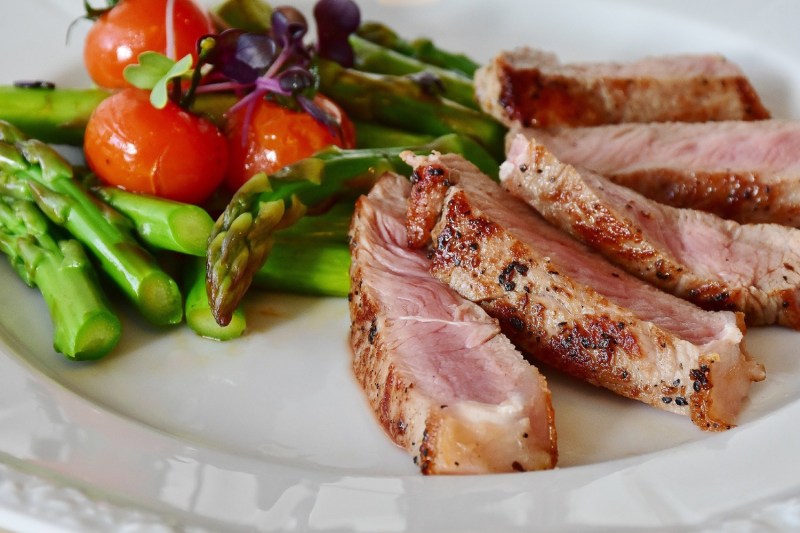
How to increase protein in your diet
Slowly increase the amount of protein you consume. Don’t jump from 56 to 156 grams overnight. Everyone’s body is different, but generally, protein can be difficult for the body to digest. Instead, increase your protein intake slowly over a week or two, allowing your body to adapt to the higher levels of protein. As a general rule, focus on whole foods first. Whole foods high in protein include the following:
Meat
- Lean red meat
- Chicken
- Turkey
- Fish
Eggs
Not only are eggs high in protein, but the body absorbs egg protein really well
Dairy
- Milk
- Yogurt
- Cottage cheese
Nuts
Though higher in fat, nuts also contain a good amount of protein
Legumes and beans
Black, red, kidney, chickpea, you name it, it’s got protein
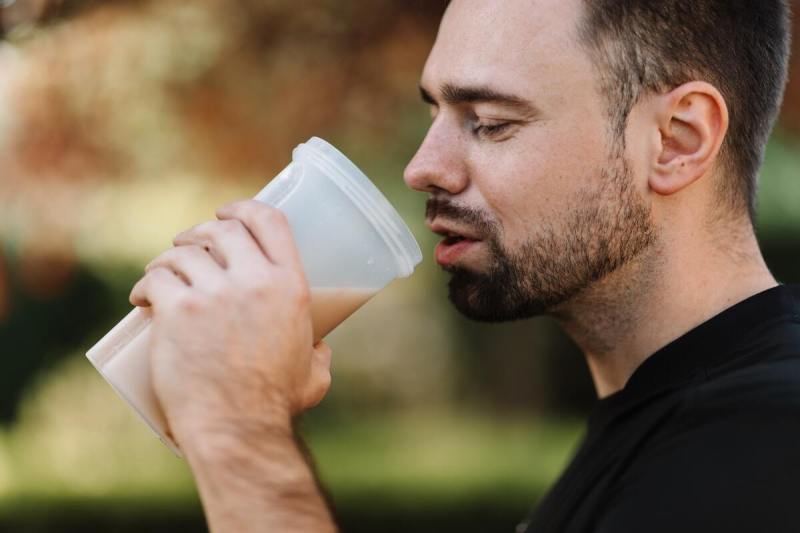
When to avoid protein shakes
If you’re trying to lose weight and are therefore operating in the caloric deficit mentioned above, you might want to avoid protein shakes. It’s generally easier to drink calories than eat calories because liquids are less filling. If you’re restricting calories, the last thing you want is to consume food that’s less filling! A large salad with lots of greens and grilled chicken or tofu is going to leave you fuller for longer than a shake.
It’s all personal preference, but try whole foods first and see how you feel. If you’re not trying to lose weight and instead have the opposite problem (it’s impossible for you to put on weight), then a protein shake can be an excellent addition to your nutrition plan. Shakes deliver 25 to 50 grams of protein and are easy to consume compared to another six oz of chicken or a cup of beans. They also have the benefit of being easy to consume post-workout, especially if you work out in the middle of the day.
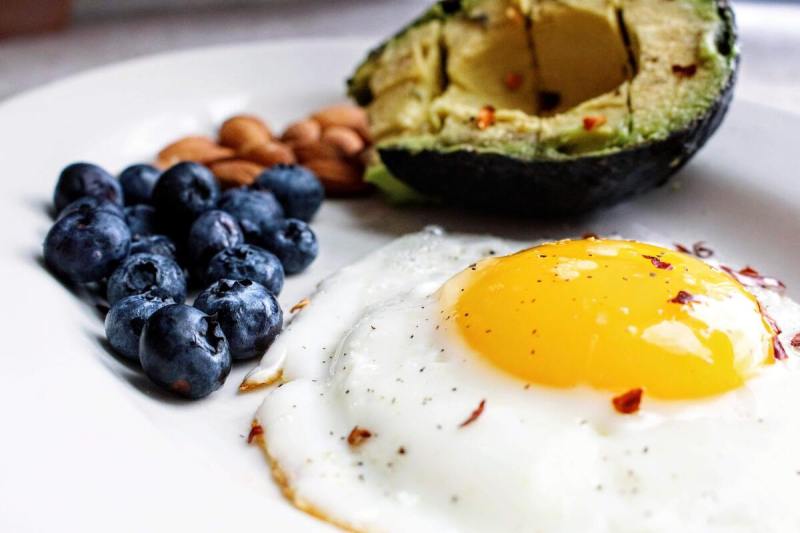
High protein diet vs. ketogenic diet
A high protein diet can include carbs or not. Reducing or even eliminating carbohydrates will send your body into ketosis, which is a whole different nutrition plan. If you’re interested in the ketogenic diet, do some research, so you have a full understanding of the diet. This high protein diet is not advocating eliminating carbs, but simply increasing protein in ratio to what else you eat in a day.
A brief lesson on macronutrients: Carbohydrates and proteins each have four calories per gram. Fat has 9 calories per gram. This means if you’re shooting for a 2,000-calorie diet, let’s say 150 grams (or 600 calories) comes from protein, 250 grams (or 1,000 calories) comes from carbs, and 50 grams (450 calories) comes from fat. That’s 2,050 calories. Some people’s bodies do better with higher fat and some with higher carbs.
Try this out: Set a consistent daily protein intake (once you’ve worked up to it). Then experiment with different levels of carbs and fats. I wouldn’t go lower than 20 grams of fat since fat is responsible for testosterone and mood.
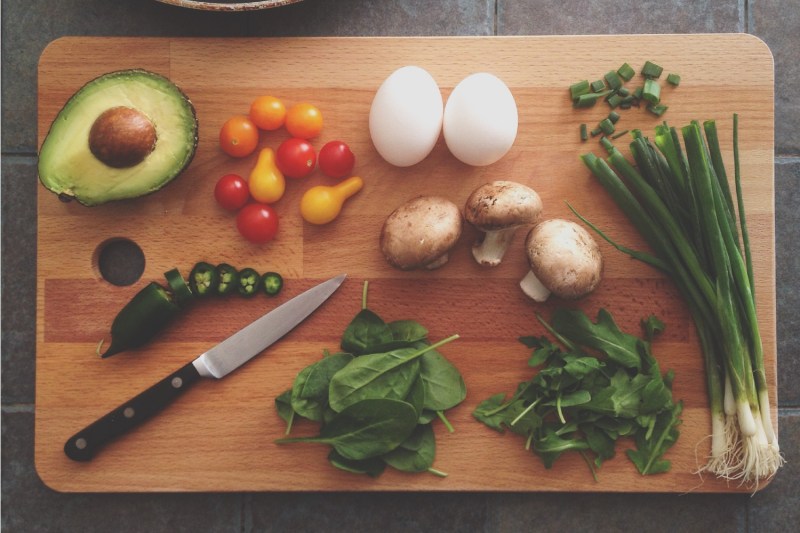
How much protein to eat and how much is too much
So 56 grams has been thrown down as a baseline. This Healthline article suggests up to 0.75 grams per pound maximizes the benefits of protein consumption. More than this, the benefits fall off for some people. So, if you weigh 175 pounds, shoot for 130 grams of protein per day. For many of us, this is plenty, and fitting that much protein into our diet can be challenging. However, in some spheres, 0.75 grams/pound is still low. Professional bodybuilders, for example, consume anywhere from 1 gram to 1.5 grams of protein per pound of body weight.
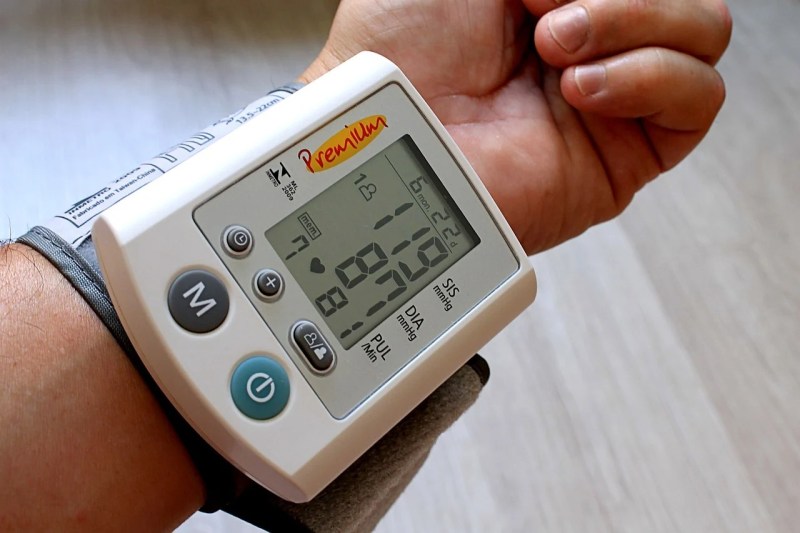
Cons of a high protein diet
- As mentioned, protein can be hard for the body to digest, and processing all that protein can leave you feeling sluggish. It can also wreak havoc on your digestive tract.
- High protein diets that include a lot of red meat and fatty meats can have negative health effects like high blood pressure, heart disease, and high cholesterol.
- For those with pre-existing kidney issues, a high protein diet can make that worse. Talk with your doctor and get regular physicals before implementing any super-high protein diet.
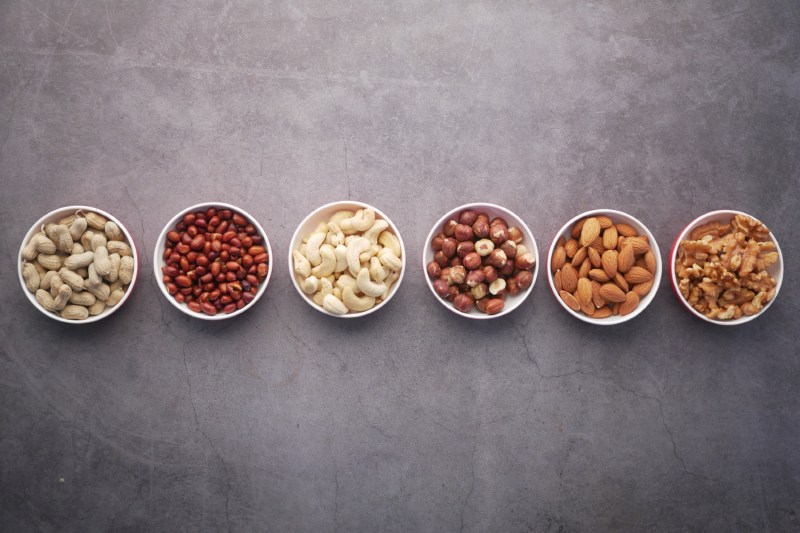
High protein diets for vegetarians and vegans
There are plenty of quality protein sources that are not meat. Some of the highlights include eggs, nuts, nut butter, beans, and soy products. If you’re worried about losing muscle or performance, consider the fact that Alex Honnold is vegetarian (sometimes vegan), Venus Williams is vegan, and bodybuilder Barny du Plessis is vegan as well.
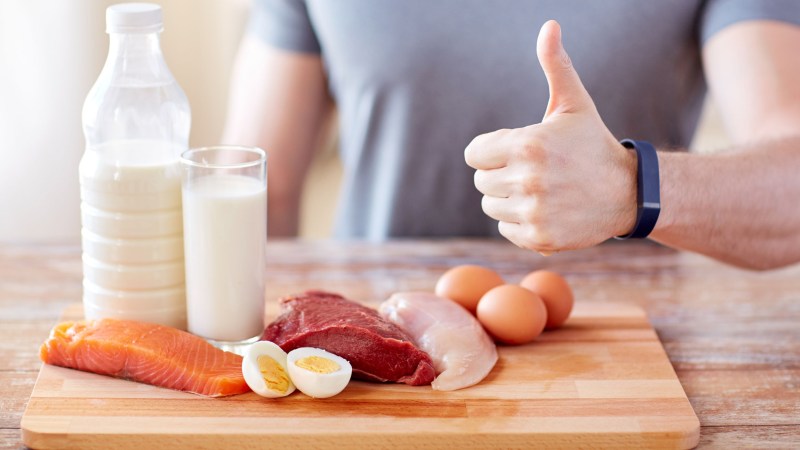
When to consume protein
In general, the body can only process so much protein at one time. For maximum benefit, consume 25 to 30 grams of protein with meals and snacks throughout the day. You could break 150 grams of protein down into three meals and two snacks, each consisting of 30 grams of protein. It’s important to consume protein as part of your first meal of the day, especially if you’re trying to maintain muscle mass.
How exactly you structure your protein intake is up to you and will vary based on your food preferences, whether you work from home or office, live in a van, or have other dietary restrictions. One thing that will help you consume enough protein (and reach your nutrition goals) is being intentional about your meal choices and meal prepping.
If you leave your nutrition up to whatever you come across, holiday cookies, the office birthday cake, and french fries (all low in protein) will find their way into your life. If you’re serious about getting in shape, staying in shape, and hitting your macronutrient goals, fill your fridge (and your lunchbox) with healthy foods. You’ll quickly find you’re more easily filling your stomach with them, too.

Can a high protein diet cause constipation?
Yes, a high protein diet can contribute to constipation, but it’s important to understand the underlying reason. While protein itself doesn’t directly cause constipation, two common factors associated with high-protein diets can lead to it, and that includes a lack of fiber and a lower intake of other food groups.
Many high-protein foods, like meat and cheese, are naturally low in fiber. Fiber adds bulk to stool and helps it move smoothly through your digestive system. Without enough fiber, stool can become dry and hard, making it difficult to pass. Also, focusing on protein might lead to eating less of other crucial food groups, especially fruits, vegetables, and whole grains, which are excellent sources of fiber. By inadvertently neglecting these fiber-rich groups, you’re increasing your risk of constipation. So be sure while you’re following a high protein diet, you still get enough fiber, fruits, veggies, and whole grains.
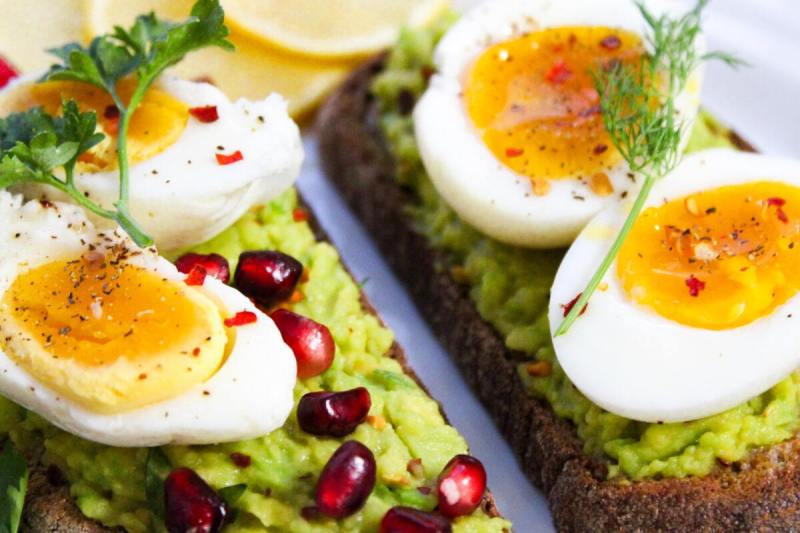
How can I get in 150 grams of protein a day?
While everyone’s protein intake is going to be different based on various factors, let’s take a look at how you could consume 150 grams in one day. The idea of this much protein in one day may seem like a lot to some people, but it is very doable when you plan ahead!
Two protein shakes (200 calories, 50 grams of protein) + 1 protein bar (230 calories, 20 grams of protein) + 184 grams of egg whites (100 calories, 20 grams of protein) + 5-ounce chicken breast (125 calories, 27.5 grams of protein) + 5-ounce ground turkey (200 calories, 27.5 grams of protein) + 1/2 cup of plain Greek yogurt (60 calories, 11 grams protein)
The above combination comes to a total of 915 calories and 156 grams of protein.



